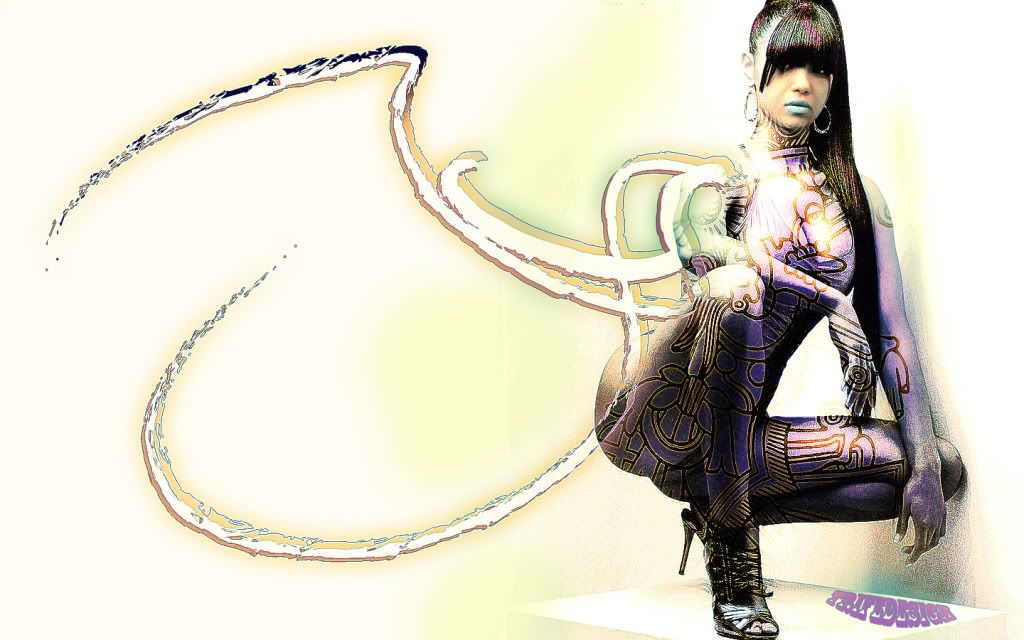















Fasting. — As the writer has gone to great pains to point out, the basis of all natural treatment is, and always must be, the release of the healing powers resident within the body of the individual sufferer from disease, to enable these same healing powers the fullest opportunity to operate within the organism, and thus bring about that restoration of normal functioning which is known as health. Now, of the various measures employed in the course of natural treatment, some effect this release of natural healing power far more than others, and are, as a consequence, far more valuable as natural curative agents. Of these natural curative agents, by far the most important is fasting.
That fasting is not employed as a therapeutic agency in orthodox medical circles is evidence of how far the medical profession has allowed itself to become oblivious to the simplest facts relating to natural processes of cure in its attempts to overcome disease. For they would only have to look to the manner in which the members of the animal and bird kingdoms recover from disease or accident without any external aid whatsoever to see these natural processes in full operation before their eyes everywhere around them.
But the medical mind is so full of theories about disease, and of how it may be artificially overcome, that it never thinks of looking to see how living creatures — other than man, behave and react when confronted by the phenomenon of disease within their midst. If it did, it would learn far more that would be of value, both to itself and its patients, than any amount of laboratory research or examinations of the bodies of dead persons.
It is to the living that we must look for guidance in understanding the laws which govern life and health, and the fact that much of medical information about these vital matters is derived from the study of anatomical specimens — corpses — or from the action of germ cultures under the microscope accounts for much of present-day medical incompetence to deal with disease when face to face with it in the living organism.
In the animal world or bird world, disease as disease is very rare ; but accident or injury from conflict is of very common occurrence. One has to look to the domestic animals—those brought up under artificial conditions and fed so unnaturally—if one wishes to see disease amongst the lower orders. But whether it be in the recovery from injury or accident or the overcoming of disease, all living creatures— excepting man—display a most definite and marked uniformity of action which can only be understood when it is realised that it is the direct action of the instinct of self-preservation which is thus being allowed to come into full play for the purpose of bringing the animal or bird organism back to abundant vigour and strength once more.
The first thing one notices about all animals or birds when unwell — perhaps insects and fishes for that matter, but one cannot be sure — is that they immediately cease from taking food. They stop eating at once. (Anyone who possesses a pet dog or cat can verify this statement for himself the next time the said animal falls ill.) They will not take food, no matter how much they may be pressed or cajoled. They will eat nothing perhaps for a week or longer — they may sip a drop of water now and then — until the disease or malaise has run its course, and the natural " prompter " within them (the instinct of self-preservation) tells them they may now begin eating.
Fasting, then, we may see, is a natural expedient resorted to by all living creatures when unwell. It is a natural reaction to disease or malaise of any kind by which the living organism seeks to set itself in proper equilibrium again. Why, then, has man refused to take advantage of it ? Because, as man has grown more and more " civilised," his natural reactions (or instincts) have become more and more overlaid with a veneer of artificial reasoning and logic ; so that, instead of giving heed to the natural promptings from within, he has turned more and more to outside agencies — to those who can appeal to his credulity, to those in authority — for guidance in the treatment of his body when confronted with the phenomenon of disease.
This is not to say that clear thought and sound reasoning are to be discouraged, but the thought-processes of the average human being are far from clear or sound. He is at once a prey to superstition and custom, to habit and tradition; to all the forces, in fact, which exert the wrong influence over his mind and reasoning faculties. And by giving heed to these and denying the existence of the instinctive and natural guides within, modern man does more harm to himself — not only in matters relating to health and disease, but in all the general affairs of life also — than the world at large could possibly believe or imagine.
The Physiological Processes of Fasting. Having established the fact, then, that fasting is the most instinctive of all healing mechanisms (as exemplified in the reactions of the lower orders towards disease), let us now see exactly what takes place within the body when a fast is instituted. We shall see at once why fasting is such an invaluable natural curative agent.
During health the body is concerned primarily with the carrying on of its various functions and activities and in trying to keep these at the highest possible level of efficiency. To carry on this work effectively, it needs food. Food is therefore of absolute prime importance to life and health ; and it is through the assimilation of the nutrient elements of the food we eat that the body is enabled to carry on its work.
But thanks to civilised man's ignorance as to what real food should be and what foods and what quantities of such foods should constitute his daily dietary, instead of the body deriving the maximum of benefit from the food eaten, it is at a constant disadvantage all the time. It has, first, to use up constantly some of its own invaluable materials to replace those wantonly withheld from it through the thoughtless cooking and refining habits of to-day (materials which Nature abundantly supplies for its use, and which it constantly needs for its provision if it is to function at all properly) ; and secondly, the demineralised and devitalised products which form the bulk of modern man's food are fed to it in such overwhelming quantities that the body is literally at its wit's end to know what to do with them.
Instead of a normal daily supply of the simple, unspoilt natural foods proper to it, the body receives a vast bulk of denatured and devitalised food products, which the people of today, thanks to their complete ignorance concerning the proper nature of food (an ignorance shared to the full by the medical profession in general also), force upon it day after day through the medium of their four " square " daily meals. What is the result ?
Forced to deal with this constant daily stream of excessive food materials thrust upon it by a food-ignorant owner (food materials denuded almost completely of the natural mineral elements and vital properties all proper food should contain, and without which real health is impossible), the body finds its work of keeping the efficiency of the organism at the highest possible level impeded more and more seriously each succeeding year of the individual's life.
But not only is bodily efficiency thus continually impeded and impaired ; the surplus of food materials, which the body is unable to use up or throw off, remains behind in the system to form the basis of that most puzzling of all phenomena to the orthodox medical and lay mind alike : DISEASE. The physical basis of all disease in the human system (or animal system for that matter) is wrong feeding ; so that the value of fasting as a curative agent must surely begin to be apparent to the reader now ?
By not eating — or fasting — the body is given an opportunity for self-cleansing which the daily ingestion of a regular quantity of food renders impossible. Whilst eating is in progress — no matter how small the quantity taken daily — the body is forced to deal with it, and the positive process of assimilation is still the dominant process of the organism. But when food is withheld, as during the process of fasting, then assimilation stops, and the reverse or negative process of elimination takes its place.
The dominant physiological process in the living organism may be, therefore, either the positive one of assimilation or the negative one of elimination, but both cannot proceed to any extent side by side. (There is always a certain amount of elimination taking place daily through the usual organs of elimination, the lungs, skin, bowels, and kidneys, but that is only a subsidiary process to the main assimilative process as a whole.)
For real elimination to set in, there must be complete cessation from food. Having no food to deal with, the body is then free, at long last, to deal with the accumulations of toxic materials present within it — accumulations brought there in the first place through wrong feeding habits, and accentuated by such factors as overwork, nerve exhaustion, worry, excesses of all kinds, etc., and which the philosophy of Nature Cure recognises as the physical basis of all disease. Without this basic residue of toxic matter supplied to the system through the agency of wrong feeding, disease as we know it to-day would be impossible !
Thus, generally speaking, no matter what the disease, fasting is the surest medium for its elimination from the system, by virtue of the fact that through the fasting process all the body's available, energy can be turned to the work of self-cleansing. For a really clean body, internally, means a healthy body ; and fasting is the body cleanser supreme.
But to claim that fasting is a " cure-all," to assert that all disease no matter of what nature or what duration, can immediately be overcome by the institution of a fast would be foolish. Obviously the sufferer, the nature of the complaint (whether acute or chronic), and various other considerations will all have to be taken into account. But this much is certain : the paramount healing value and efficacy of fasting in the treatment of disease has only to be tried for it to become manifest to all ! to even the meanest intelligence !
When will the day arrive when fasting will be given its rightful place as the foremost of all healing agencies ? When will the day arrive when people will turn to the fast as the quickest and surest path from disease to health ? Only when the world has become emancipated from the errors and blunders of orthodox medication, and turns once more to Nature for guidance in the overcoming of disease !
The Procedure of Fasting.— The age of the sufferer the nature of the complaint, its duration, etc., are all factors which have to be considered before a fast should be set in progress, and before deciding of what duration it should be. That is why skilled naturopathic advice and attention should always be sought (where possible) before this most efficacious of all natural healing agencies is undertaken by the individual sufferer from disease.
Depending upon the condition of the patient, a fast may be carried on for two, three, five, ten, fifteen, twenty, or even thirty or forty days. But any fast over a week in length is by far the best carried out in a properly organised Nature Cure institution, where every convenience and aid can be guaranteed to the faster. Usually the longer the fast, the better the results ; but whether a short or long fast is undertaken, the procedure is exactly the same.
The fast may be conducted on water only, or else the patient is given fruit juices—usually orange juice—at two-hourly intervals during the day. (If the patient is unable to take orange juice, vegetable juices are given instead.) These vegetable or fruit juices are in no sense food, and serve not only to cleanse the alimentary canal (or digestive tract), but to supply the system with some of the invaluable mineral salts invariably lacking in the body of the sufferer from disease.
As soon as the fast is begun, the body begins its self-cleansing activity. The tongue begins to fur (get coated), the temperature of the body visibly lowers (as a result of the absence of food to keep up the normal body temperature), and a general sense of weakness sets in. This weakness or debility when fasting is far more marked in some cases than in others, and is in direct proportion to the stamina and vitality of the faster. With some it is more apparent at the beginning of the fast than later on ; but more generally it continues to make its presence felt more and more as the fast proceeds. The prevalent idea about fasting is that one immediately begins to starve oneself. But fasting and starving are quite different things. Fasts can be so prolonged that in time the faster does begin really to starve himself, but there is a well-marked line where fasting leaves off and starving begins.
Whilst there is surplus nutriment in the tissues to be absorbed, the body lives on it during the process of the fast. Obviously, the living process is not the same as when real food is eaten ; but nevertheless there is quite a definite activity going on within the body, during the process of which excess acids and other surpluses are absorbed and toxins released and eliminated. Fasting restores physiological balance. Starving implies living upon one's own vital tissues, by virtue of which the body is brought to a level of emaciation such as to render further life impossible. But a properly conducted fast—of even forty or fifty days' duration—runs no risk of this taking place. It is only the confusion in foolish minds which looks upon fasting and starving as the same thing.
The deaths which are supposed to occur from starvation—those cases which we read about of people starving to death on derelict boats or on desert islands—these are the results of fear rather than actual starvation. People have got accustomed to the belief that if one goes without food for even a day then one is surely beginning to starve to death. So that when they are forced to do without food for several days, even though there is no actual danger of starvation setting in and killing them, they believe they are starving to death, and it is the fear thus generated in their minds which brings about the result in question. They die not from not eating, but from the fear of the consequences of not eating.
Having swept away this stumbling-block in the path of fasting, this fear of what will happen if one does not eat food—a fear subscribed to by the medical profession also—we may now go on with our description of the fasting process.
Toxins and waste matter which have been slowly accumulating in the tissues for years are now brought into circulation by the self-cleansing activity of the body, and thence, through the medium of the usual organs of elimination, the skin, lungs, bowels and kidneys, finally ejected from the system. It follows from this that, during the fasting process, the kidneys (and also the heart, through which the blood, now heavily laden with toxins, continuously passes) will have
additional strain placed upon them ; so that with sufferers from kidney and heart troubles, this is an additional reason why skilled naturopathic advice should be sought before a fast is undertaken.
The urine will become thick with waste matter and body poisons being thrown off during the fasting process, and the bowels will also have their share of waste material to deal with. But during a fast the usual peristaltic process which makes bowel action possible is suspended ; so that, if auto-intoxication is to be avoided, i.e., if one is not to a certain extent to reabsorb one's own poisons back again into the system, it is imperative that the bowels should be cleansed daily whilst fasting with the warm-water enema.
This is a very simple procedure, but if neglected, much of the value of the fast will have been wasted. Auto-intoxication is the greatest danger to guard against when fasting ', but if the enema is used as stated, the danger is easily avoided.
In fasting for chronic diseases—such as rheumatism, diabetes, heart disease, etc.—the procedure is relatively simple. The patient may be up and about all the time, making use of the sun for sunbaths, having walks, other treatment in the shape of baths, massage, manipulative treatment, etc., all to aid the fasting process. But with those suffering from serious acute diseases—such as fevers—the procedure is not the same, obviously. Here the patient is confined to bed all the time the fever is running its course, whilst, at the jurisdiction of the attendant Naturopath, hot or cold packs are applied to relieve congestion and fever. In these cases also the enema has to be used twice a day at least during the first stages of the fast.
When one is conducting a fast oneself, there are symptoms which sometimes occur which may cause alarm, but that is only because their origin and nature are not understood. For instance, palpitation sometimes sets in, and the patient believes that his heart is becoming seriously affected. But the palpitation is only due, usually, to the increased work the heart is called upon to do whilst fasting is taking place, and soon passes off without any untoward effects.
Then there is sometimes a slight rise in temperature—slight fever ; this, again, is a sign that the cleansing process is proceeding as per schedule and that the waste matter is being burnt up in the tissues. Also, as mentioned already, the tongue becomes very coated indeed, and some are led to infer from this that the fast is injuring them instead of helping them. Again a mistake ! The tongue furs more and more as the cleansing work going on inside the system proceeds, and, indeed, it is the tongue which gives the first indication that the fast has succeeded and that it is time to stop the fasting process.
When the tongue begins to clear, that is the time to begin thinking about stopping the fast. For a really clear tongue is evidence that the body is at last really clean inside. If the fast is continued after the tongue has cleared, then the danger of actual starvation setting in arises. It is only in protracted fasts that there is this waiting for the tongue to clear for the fast to be brought to a close. In the fasts of a week or ten days the tongue is rarely clear when the fast is broken.
There is a common idea prevalent that during a fast one would become so hungry that to continue it for more than a day or two would be impossible. But this is only another of the errors disseminated by those who have no practical experience of fasting and who wish to throw doubts upon its healing value.
For the first day or two there may be appetite present, but once the system becomes adapted to the new conditions, i.e., the conditions of fasting, the appetite disappears altogether, and does not return until the fast has gone on sufficiently long for the tongue to clear. When the tongue has cleared—especially in those cases which are being fasted for fevers—appetite then begins to return. And it is time to cease fasting and begin eating again.
In a fast of a week or ten days or so, appetite will not have returned when the fast is first broken ; but as soon as food begins to be eaten, a really sound, healthy appetite will make itself apparent. This is because, while elimination is going on, the body has no thoughts of food—indeed, food is repugnant to it ; but as soon as food is taken again and the assimilative process set in operation, then the body shows its readiness to welcome food in no uncertain manner. (By this the writer does not mean that an enormous appetite will make itself manifest, so that the faster would feel that he must keep on eating all day Jo make up for the food he has missed. This is another common fallacy. No ; what is meant is, that a really clean, healthy appetite will develop, in contradistinction to the old appetite, which always had to be stimulated by the sight or thought of food before it developed.)
This matter of the complete repugnance for food during fasting is only realised by those who have had actual experience of a fast or have learnt something about fasting from books, and it is very significant. It shows that the body is NOT starving during a fast, otherwise there would be an insistent demand for food all the time from within. If the body really wanted to be fed, it would let its owner know in no uncertain fashion !
When a fast is being broken, great care must be taken not to overeat. Overeating after fasting is the greatest danger to be avoided, and here again skilled naturopathic advice and attention are indispensable. It depends upon how long the fast has been carried on as to how it should be broken ; but generally a sweet fruit (such as grapes) or milk are the foods chosen.
Gradually, and only gradually, can the faster return to a full diet again after completing a fast of some duration. And then, having been placed upon a properly balanced dietary all the good of the fast can be maintained, and the system built up to a higher and higher level of efficiency and strength all the time. But if wrong and indiscriminate feeding is resorted to after a fast, then practically all the value of the fast will be lost.
One hears sometimes of people who, having undertaken a fast, have died during its progress, or else have had to have medical aid summoned to " rescue " them from its deleterious effects. In all these cases it is ignorance—on the part of someone or other—which is to blame. Investigations of such cases invariably show that the patient was in too low a state vitally for a protracted fast to be carried out, but did so without proper advice or supervision ; or else, having been forced to call in medical advice through the pressure of well-meaning but misguided friends or relatives, the unfortunate faster has been put immediately on to a " nourishing" diet by the medical man in question.
Knowing nothing about the principles of fasting, these " nourishing " diets prescribed by medical men upset all the work of the fast, the body is unable to deal with the food given it—usually something like beef-tea or some meat extract, of strong stimulating power, but useless for breaking the fast on—and trouble results. This, of course, is laid at the door of the fast, but it is the dietetic treatment after the fast—the food on which the fast has been forcibly broken—that has set up the trouble.
The writer himself has read of a case of an individual who, quite misguidedly, set out on a prolonged fast to cure himself of some dread disease, without proper guidance in the matter. After thirty days his condition was so serious that medical attention was deemed necessary. The doctor who was called ordered at once a certain well-known meat extract to be given the patient ! Imagine what that means to one who has not eaten for thirty days, to be suddenly forced to eat highly " nourishing " food of this nature ! Of course he died ; and no wonder ! And the blame was all laid on the fasting, and never, of course, on the disastrous feeding method employed.
There is proof on proof to be had of the unexampled healing value of fasting in the treatment of disease, and many books have been written dealing expressly with the subject. To these the reader must be referred if he or she wishes for more detailed information on this most important of subjects. It is beyond the writer's province to deal with it more fully in the confines of the present book.